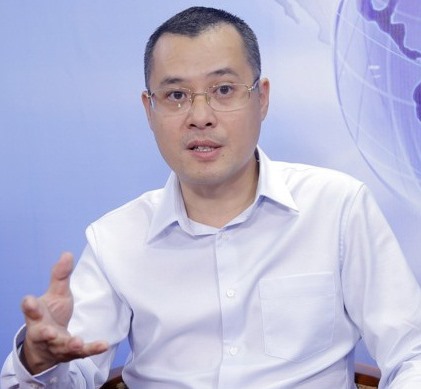.jfif) Opinion
Opinion

Phạm Đại Dương, deputy minister of Science and Technology, talks with Việt Nam News Agency about challenges the country is facing in the course of deep international integration.
 |
| Deputy Minister of Science and Technology, Phạm Đại Dương. |
Phạm Đại Dương, deputy minister of Science and Technology, talks with Vietnam News Agency about challenges the country is facing in the course of deep international integration.
Can you give an overall picture of the 4.0 industrial revolution in other countries?
The fourth industrial revolution is the convergence of all advanced technology in digital fields, physics and biology to create conditions for an intelligent industry, to generate new possibilities in business and production - and to have deep impacts upon world politics, society and economy.
All countries, depending on their levels of development, have adopted their own policies to seize any opportunity presented to them in this industrial revolution. For example, Germany has adopted the “Industrie 4.0”, while the South Korea has adopted the “Manufacturing Innovation Strategy 3.0” and Japan, the “Society 5.0”.
In other words, developing and developed nations have adopted their own programmes to either surge ahead or to remain leading nations in the 4.0 revolution.
However, in my opinion, all nations have focused on building a favourable and effective business environment – a driving force for enterprises to come up with new innovations and apply digitalisation in industrial development and others. In addition, many countries have adopted protective policies and have encouraged enterprises to apply intellectual property to their daily business. They have also adopted policies to give financial support, including low interest rates, to encourage enterprises to apply the 4.0 revolution.
Meanwhile, many countries have focused efforts on building legal corridors and criteria to help products of the 4.0 revolution to enter the market easily.
Has Việt Nam adopted measures to ensure the application of the 4.0 revolution?
The 4.0 revolution has opened up our aspirations to raise our technology to a higher level; to improve production capacity; to directly participate in world supply chains; and to become a nation with many lucrative and attractive destinations in digital technology and industrial production with advanced science and technology.
However, it is also a big challenge for us – particularly the Government and enterprises - to switch from a labour-intensive industry to the 4.0 industrial revolution. The 4.0 revolution requires the Government to enact policies to support or enable enterprises to introduce the 4.0 revolution in their production or to join the global supply chain easier and quicker.
For enterprises, the 4.0 revolution is a fierce competition in a world without borders. So they are under pressure to make change towards creativity and to make breakthroughs in their business.
In this context, both the Government and enterprises have to make changes and adopt pro-active attitude to respond to the international market demand.
As a result, to be pro-active against impacts of the 4.0 revolution, the Prime Minister has adopted the Directive 16/CT-TTg to enable the nation to approach the 4.0 industrial revolution easier; to improve the business competitive environment with top priorities given to the development of the digital industry, smart agriculture, smart tourism, smart cities and others
From the perspective of the Ministry of Science and Technology, how should Việt Nam approach the 4.0 revolution?
The Government will focus on the building of a digital economy and smart industry which are the core tasks in the course of restructuring our national economy while switching the growth model along the lines of raising productivity, quality, effectiveness and competitiveness.
To achieve these goals, we need to build and consolidate our strengths and our core values. The Government should put the enterprises in the centre throughout the course of its policy development.
Meanwhile, enterprises should be more pro-active with the Government and share with the Government their resources in infrastructure development, in science and technology.
Last but not least, we should adopt a policy to expand our specific and strategic co-operation with other nations in the region and internationally in the course of the 4.0 industrial revolution.. — VNS




